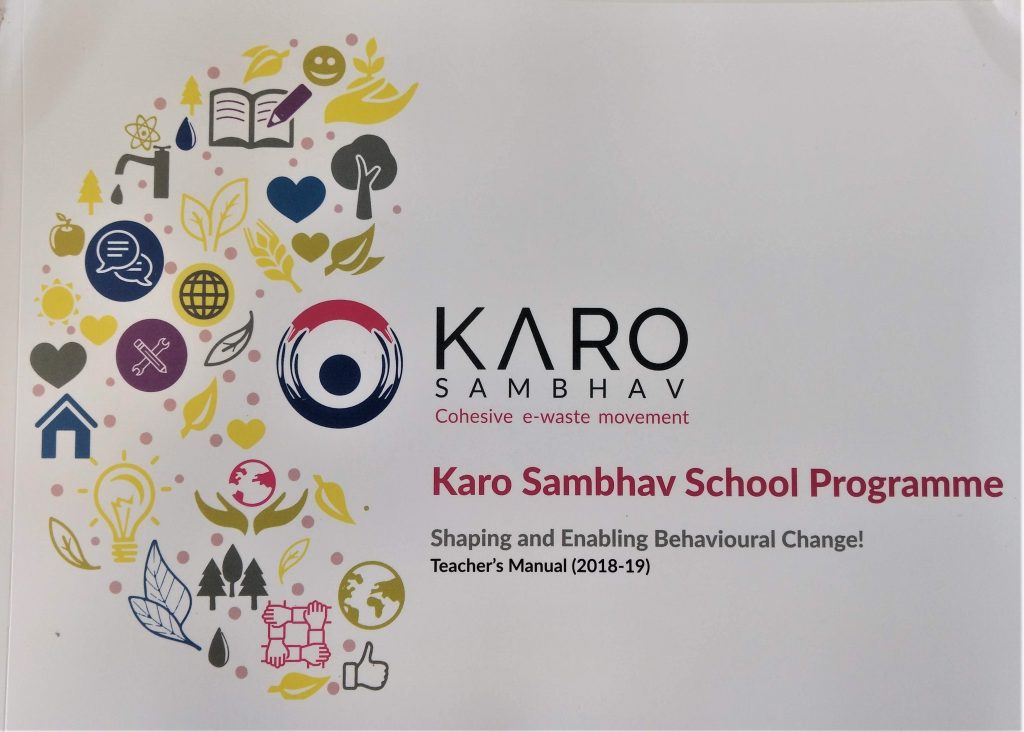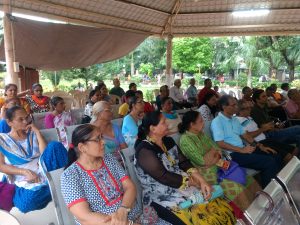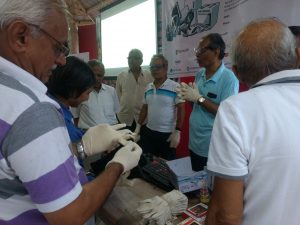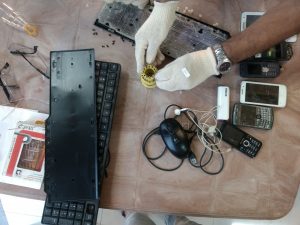When it comes to waste management, the general buzz is about two way segregation or ideally three way segregation in the form of biodegradable waste, recyclable waste and reject waste.
What about the fourth category? Take a guess, it is electronic waste.
But little thought is given by consumers to electronic waste.
In the 21st century, technology and gadgets take up most of our time. Not only millennials but even older generations, technology has got us hooked to screens in the form of television, laptops, mobile screens, tablets and more. Other than screens, household appliances run on batteries or electricity as well.
Once obsolete, where does it end up? In mixed trash in our dustbins, with local kabaddiwalla or authorized recycling organizations?
Most often, e-waste populates a drawer or shelf in Indian houses until it is overflowing and up until recently Kabaddiwallas were summoned to pick it up at a price. As consumers most of us are not even aware of what e-waste comprises of. In fact, the Government of India has a list of items that does not even cover half the items that fall under the category of e-waste.
In a nutshell, any gadget or product that is powered by electricity or batteries is broken or obsolete it turns into electronic waste or e -waste.
Green Communities Foundation has identified a gap in awareness and mechanisms for pick up or take back of electronic waste to be recycled or disposed off safely. GCF’s ethos lies on segregation and interventions at source and we work with housing societies and other institutions for greater impact.
GCF is partnering with national and international NGOs such as Karo Sambhav and Sofies, respectively in Mumbai. The broad objective is to create awareness about the detrimental effects of e-waste and enable society/school wide collection drives.
GCF encourages individuals and communities to not mix e-waste and ensure it reaches the correct channels for treatment. Else, not only is it harmful for the environment but also the consumer and illegal dismantler’s health.
Here’s how you can mobilize your community to dispose e-waste safely.
THE SCHOOL PROJECT – Karo Sambhav

Karo Sambhav is a Producer Responsibility Organization for electronic waste with a national presence. GCF is partnering with it on the School Project for awareness and training.
This first phase of this project in August, will enable GCF to rope in more than 50 schools in the western suburbs of Mumbai. It follows a ‘train the trainer’ approach, where a teacher from each school will be trained on the environmental impact that students can create. Subsequently, teachers will conduct sessions with middle school students in their respective schools. These sessions will ultimately culminate into e-waste drives for students and the schools turn into collection centres and Karo Sambhav enables efficient and safe treatment for the e-waste.
SOCIETY WORKSHOPS – Sofies
Sofies is an international NGO founded in Geneva in 2008. In India, it focuses on e-waste space and other hazardous waste streams. GCF is connecting Sofies with residential societies, resident welfare associations, ALMS and other institutions in Mumbai.
The first session was conducted with a resident’s welfare association in Chikoowadi, Borivali. The association organized an event at Jogger’s Park in Chikoowadi and residents from multiple societies attended the event. The programme comprised of an awareness and dismantling session to make members aware of the contents of e-waste and their detrimental effects on human health.
The dismantling session reveals precious metals used in PCBs, keyboards, phones and other gadgets. The Sofies group provides special mention to the harmful chemicals that can leach out from e-waste when in landfills and through illegal disposal with motives to salvage precious metals alone.
The session does not stop at awareness, an e-waste collection drive for all societies associated with the RWA is organized. Sofies and RLG will enable pick up and proper treatment of the products.
The above programmes are for large communities but fret not, if you are individual with e-waste. If you cannot convince your society or school, you can drop off your e-waste at Croma and Vijay stores all over Mumbai.
Check the closest drop off point –
https://www.croma.com/store?location=default
https://www.vijaysales.com/e-waste-recycling
Psst, Croma also offers encashment vouchers or credit in exchange of e-waste.




